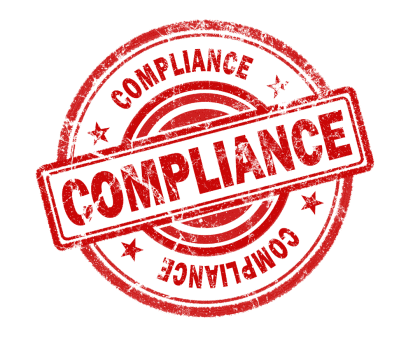Debt Settlement Agreement: A Comprehensive Guide
Introduction to Debt Settlement
In today’s financial landscape, debt settlement has emerged as a viable solution for individuals struggling with overwhelming debt burdens. A debt settlement agreement serves as a crucial tool in this process, offering a structured framework for renegotiating and resolving outstanding debts between creditors and debtors. This comprehensive guide delves into the intricacies of debt settlement agreements, elucidating their key components, usage, and associated considerations.
Understanding Debt Settlement Agreements
What is a Debt Settlement Agreement?
A debt settlement agreement constitutes a legally binding contract entered into by a creditor and a debtor, delineating the terms and conditions for resolving a debt. This document facilitates negotiations wherein the debtor proposes a payment amount lower than the outstanding debt, typically ranging between 50% to 70%.
How Does Debt Settlement Work?
Debt settlement involves a negotiation process wherein the debtor, often aided by a third-party representative, proposes a lump-sum payment to the creditor in exchange for the forgiveness of a portion of the debt. This approach is commonly employed for unsecured debts such as credit card balances.
Key Components of a Debt Settlement Agreement
The Parties Involved
- Creditor: The entity holding the debt.
- Debtor: The individual obligated to repay the debt.
Debt Settlement Terms
- Outstanding Debt Amount: The total sum owed by the debtor to the creditor.
- Negotiated Settlement Amount: The agreed-upon payment, typically less than the outstanding balance.
- Payment Deadline: The specified timeframe within which the settlement payment must be made.
Post-Payment Actions
Upon receipt of the negotiated settlement amount, the creditor undertakes certain actions, including:
- Marking the debt as paid.
- Removing adverse entries from the debtor’s credit report.
- Refraining from furnishing additional detrimental information to credit reporting agencies.
Crafting a Debt Settlement Agreement
Sample Debt Settlement Agreement Template
DEBT SETTLEMENT AGREEMENT
Effective Date: [DATE]
This Agreement pertains to the negotiation and compromise of a debt under the following terms:
The Parties
- Creditor: [NAME OF CREDITOR]
- Mailing Address: [ADDRESS]
- City: [CITY]
- State: [STATE]
- Debtor: [NAME OF DEBTOR]
- Mailing Address: [ADDRESS]
- City: [CITY]
- State: [STATE]
Debt Settlement
- The Debtor acknowledges an outstanding debt with the Creditor.
- Both Parties agree that the debt shall be considered satisfied upon the Debtor’s payment of $[AMOUNT] by [DATE].
Post-Payment
- Following payment, the Creditor agrees to:
- Endeavor to expunge the debt from Credit Reporting Agencies.
- Abstain from disclosing further adverse information on the Debtor’s credit file.
By affixing their signatures below, the Parties affirm their acceptance of the terms and conditions outlined herein.
Debtor’s Signature:
Date: ___________________ Creditor’s Signature:
Date: ___________________
Utilizing the Template
Format Selection
Select the preferred format for the debt settlement agreement, available in PDF, Microsoft Word, or Open Document Text.
Information Provision
Complete the template by furnishing details pertaining to the creditor and debtor, along with the relevant debt particulars and payment terms.
References and Resources
Further Guidance on Debt Settlement
- Free Debt Settlement Agreement Template | Sample – eForms
- Write a Debt Settlement Letter Using This Free Template – Upsolve
- Debt Settlement Agreement Template – PandaDoc
Frequently Asked Questions (FAQs)
- What is a Debt Settlement Agreements?
- A debt settlement agreement is a legally binding contract between a creditor and a debtor, facilitating the renegotiation of a debt under mutually agreed-upon terms.
- How does Debt Settlement Work?
- Debt settlement entails negotiating with creditors to settle a debt for less than the outstanding balance, typically resulting in a lump-sum payment by the debtor.
- Can I Settle My Debts on My Own?
- Yes, individuals can engage in direct negotiations with creditors for debt settlement, although many opt to enlist the services of third-party debt relief entities.
- What Risks are Associated with Debt Settlement?
- Debt settlement may adversely affect one’s credit score, and individuals should exercise caution to avoid falling victim to scams perpetrated by illegitimate debt settlement entities.
- How Much Should I Offer for Settlement?
- Initiating negotiations with an offer equivalent to 25% to 30% of the outstanding balance is advisable, although creditors may counteroffer based on individual circumstances.
- What Happens After a Debt Settlement Agreement?
- It is imperative to obtain written confirmation of the settlement terms, as verbal agreements are not binding, potentially exposing debtors to further collection actions.
Conclusion
In navigating the complexities of debt settlement, a comprehensive understanding of the debt settlement agreement is indispensable. By adhering to the prescribed guidelines and leveraging the provided resources, individuals can embark on the path towards financial solvency with confidence and clarity.
References:
- Contract Lawyers: Debt Settlement Agreements
- eForms: Free Debt Settlement AgreementsTemplate
- Wonder.Legal: Debt Settlement Agreements Template
- Forbes Advisor: Debt Settlement CompaniesAuthor Note:This article was authored by Noor Siddiqui from etaxdial.com with the intention of providing informative content to update readers’ knowledge. At etaxdial.com, we strive to offer valuable insights to help individuals stay informed about various topics, including taxation, finance, and related subjects. We hope that this article serves as a useful resource for our readers, empowering them with the information needed to make informed decisions.




